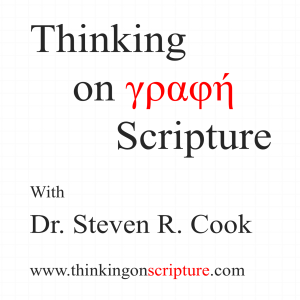
Saturday Jan 11, 2020
Haggai 2:1-9
The Central Idea of the Text is that God encourages His people to take courage and continue to work on the temple. The opening verse informs us that God had sent a second message to Haggai nearly a month after the people began working on rebuilding the second temple (Hag 2:1). The time frame would be October 17th to September 21st, 520 B.C. The message was directed to “Zerubbabel the son of Shealtiel, governor of Judah, and to Joshua the son of Jehozadak, the high priest, and to the remnant of the people” (Hag 2:2). Apparently enough of the temple’s reconstruction was finished that people could see what the final form was going to look like, and the older Israelites who had seen Solomon’s temple began to get discouraged. Haggai addressed them with three questions, saying, “Who is left among you who saw this temple in its former glory? And how do you see it now? Does it not seem to you like nothing in comparison?” (Hag 2:3). The new temple would be as “nothing in comparison” to the old temple, and Haggai did not try ignore the obvious. But the older group needed to get past their disappointment, which might have derailed the work of the new temple, as simple and inglorious as it was in comparison to the Solomonic temple. A functional temple was better than no temple at all, as it would allow the Israelites to resume their worship as the Mosaic Law prescribed. Three times God told the leadership and people to “take courage” and to “work”, saying, “for I am with you, declares the LORD of hosts” (Hag 2:4). The mental comparison that was being made by the people nearly crippled the work that God wanted done. Rather than rebuke them, He gave them words of encouragement, saying, “As for the promise which I made you when you came out of Egypt, My Spirit is abiding in your midst; do not fear!” (Hag 2:5). It’s possible that many Israelites had felt that God was not with them as He’d been in the days when they were first called out of Egypt and established as a nation. Just as He’d promised to be with their forefathers when they came out of Egyptian captivity, so He was now saying His “Spirit is abiding” in their midst. God’s presence and promises strengthen the soul and dispel fear. And, just as God had shaken the earth at Mount Sinai when He entered into a covenant with them (Ex 19:18), so He told this generation, “Once more in a little while, I am going to shake the heavens and the earth, the sea also and the dry land” (Hag 2:6). This work of God would not occur in their lifetime, but in the future, when Christ returns and builds a glorious temple that will function during His millennial reign. At that time, God declares, “I will shake all the nations; and they will come with the wealth of all nations, and I will fill this house with glory” (Hag 2:7). That is, God will summon the Gentile nations of the world to bring their wealth to Jerusalem and it will come into the temple. God can do this because He owns everything, saying, “‘The silver is Mine and the gold is Mine,’ declares the LORD of hosts” (Hag 2:8). So, even though the temple in Haggai’s day would be simple, the millennial temple will be more glorious than Solomon’s temple, as the Lord states, “‘The latter glory of this house will be greater than the former,’ says the LORD of hosts, ‘and in this place I will give peace,’ declares the LORD of hosts’” (Hag 2:9). “The restored building had nothing of the splendor of Solomon’s temple, but it was still God’s house, built according to His plan and for His glory. The same ministry would be performed at its altars and the same worship presented to the Lord. Times change, but ministry goes on.”[1] The future Israelites living in the millennial kingdom will receive the wealth of the Gentile nations (Isa 60:5-7), much like their forefathers had received the wealth of Egypt when they were liberated from captivity (Ex 3:21-22; 11:2-3; 12:35-36). For the Israelites, faith in God and His promises suppressed their fears and provided the courage to stand and do His will.
[1] Warren W. Wiersbe, Be Heroic, “Be” Commentary Series (Colorado Springs, CO: ChariotVictor Pub., 1997), 72.
No comments yet. Be the first to say something!